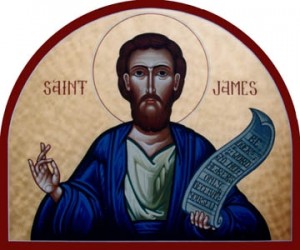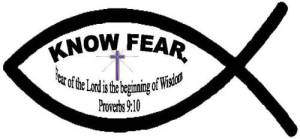1211AFC031612 – Catholic Letter Series
Read it online here. Use the links to get additional information.
From the ESV
James 1:5 If any of you lacks wisdom, let him ask God, who gives generously to all without reproach, and it will be given him.
James 3:17 But the wisdom from above is first pure, then peaceable, gentle, open to reason, full of mercy and good fruits, impartial and sincere.
E pili mau na pomaika‘i ia ‘oe a me ke akua ho’omaika’i ‘oe! (May blessing always be with you and may God bless you!)
Today we take a peek into a truly remarkable epistle, the Epistle of James. First, a little background. The Epistle of James begins, “James, a servant of God and of the Lord Jesus Christ, to the twelve tribes in the Dispersion: Greetings.” In this opening greeting, James refers himself as a servant (viz. “slave”) of God and of the Lord Jesus Christ. This points us away from the assumption that the epistle was written by the same James that was an Apostle, the brother of John, and a possible relative of Jesus who is usually referred to by the word ἀδελφὸν [{a•DEL•phon}: a brother, member of the same religious community, especially a fellow-Christian] (See Galatians 1:19)
 Secondly, this document is not really in the form of an epistle – a letter – like those which were written by Paul. There’s no general blessing at the beginning, and the document ends abruptly by stating that whoever converts a sinner “will save his soul and will cover a multitude of sins.” No one who is a contemporary of James is mentioned by name. Only the Great Heroes of the Jews are mentioned. It has no distinct divisions other than segues from one topic to another. It is a very pleasant, well-composed essay about the ethical boundaries the Christian Community should respect and teach. It is a collection of the respected teaching of someone who had a strong commitment to Christ as Lord and Savior, James the Just. The “letter” was distributed and studied widely throughout the diaspora. For the next 300 years or so there was ongoing debate as to whether or not this document was something that should be included in the uncontested (canonical) literature but it was finally ratified by the third council of Carthage in 397 AD. It always traveled with the name JAMES attached to it.
Secondly, this document is not really in the form of an epistle – a letter – like those which were written by Paul. There’s no general blessing at the beginning, and the document ends abruptly by stating that whoever converts a sinner “will save his soul and will cover a multitude of sins.” No one who is a contemporary of James is mentioned by name. Only the Great Heroes of the Jews are mentioned. It has no distinct divisions other than segues from one topic to another. It is a very pleasant, well-composed essay about the ethical boundaries the Christian Community should respect and teach. It is a collection of the respected teaching of someone who had a strong commitment to Christ as Lord and Savior, James the Just. The “letter” was distributed and studied widely throughout the diaspora. For the next 300 years or so there was ongoing debate as to whether or not this document was something that should be included in the uncontested (canonical) literature but it was finally ratified by the third council of Carthage in 397 AD. It always traveled with the name JAMES attached to it.
This particular JAMES seems to have been recognized as a representative of the early Christian community in Jerusalem who is often referred to as James the Just. He was stoned to death under the authority of the High Priest at that time, one Ananus II, who was the son of the High Priest Ananias who completed a famous role in the Passion of Christ. It may be no coincidence that this epistle seems to have appeared within a year or so of that incident, around 62 A.D. James was clearly a man who was well respected in the early church, not just in Jerusalem, but throughout the diaspora, the dispersion of the Jews and of the Church. I accept the assertion of many scholars who have identified him as “James the brother of the Lord” – a cousin of Jesus – who at first did not believe, but then came to know a profound faith when Jesus appeared to him individually after the resurrection (See Corinthians 15:3-11 especially v. 7)
So, all in all, this epistle was a collection of information sent out by James the Just and/or his disciples. It was sent to encourage the early Christians (first called Christians in the Church of Antioch in about 31 AD) to endure everything brought against them by
- relying on God’s generous wisdom, James 1:5
- recognizing Christ as the Living Word of God (LOGOS), James 1:19-2:13 16
- understanding the true work of faith by putting true faith to work James 2:14-26
- speaking always in, through, and with LOVE James 3:1-12 33
- tuning to the wisdom of God to inform the wisdom of man James 3:13-18
- submitting fully to God’s authority and teaching in Jesus James 4:1-17
- resisting the enticements of materialism James 5:1-6
- waiting patiently for the imminent return of the Lord, James 5:7-11 and
- using the power of faith rather than the power of persuasion James 5:12-20
For the next 300 years or so there was ongoing debate as to whether or not this document was something that should be included in the uncontested (canonical) literature but it was finally ratified by the third council of Carthage in 397 AD.
The two verses I chose capture something about the book of James that has always brought me back to reading it when I have questions about how certain things should get done – day-to-day living things. I have a knack for finding ways to do foolish things, to “lack wisdom.” At times it seems it is the only aspect of my life in which I truly excel. 😉 James 1:5 was one verse that was quoted frequently to me when I was growing up. The idea is to ask God for HIS wisdom, because it’s way better than mine, and to ask with confidence because of God’s generosity.
From there, James goes on to say. “But when you ask him, be sure that your faith is in God alone. Do not waver, for a person with divided loyalty is as unsettled as a wave of the sea that is blown and tossed by the wind.” There is just so much good, practical, easy-to-understand advice in this treatise on good Christian conduct. If you have teens in your family, try reading it with them – half a chapter a day at least –so they can hear the content. It will serve them well both soon and later.
It is in James that we have the idea of the tongue being a terribly powerful weapon worse than fire, stronger that a ship’s rudder, and able to bring calamity on others and especially one’s self. (James 3:1-12) In the very next section of James, he writes about the importance of wisdom from above and how those who teach about God must rely on that more than anything else. Only the Wisdom of God is so pure that it can put our hearts and minds at rest. Our own wisdom leaves much that can undo itself, whereas God’s wisdom is so complete that there is nothing in it which can be undone. It is not through religiosity that wisdom comes, but the The Spirit of God which is the Spirit of Wisdom that accompanied God at the Creation and is with God always. Immersing our intent in God’s wisdom makes that intent pure and peaceable and the person with that intention become purified, humbled, and holy. It purifies the heart above all else, making the intention and the one who holds that intention righteous, harmless, and just.
When our inward lives – our hearts and minds – are transformed like this, made pure and just in the Wisdom of God, our outward lives – our works, prayers, joys, sorrow, sufferings, victories, defeats, distress, desires, and dreams – all of these in turn become pure, then peaceable, gentle, open to reason, full of mercy and good fruits, impartial, and sincere.
So we know we should seek God’s own Wisdom, and sometimes even God’s own energy so we can grasp that wisdom, and when He bestows that wisdom on us, we must accept it with humility and openness so that we will willingly allow our life in him to conform to that Wisdom which is also His will and His Gift to us through Jesus.
It would probably take you about 20 minutes to read straight through this remarkable document (which truly is one of my favorite things to do), so I urge you sometime this week either to read it through, or just read 1 chapter a day until all five chapters have been read. I am certain you will benefit from that exercise.
And here is Wisdom, Beloved:
 “‘Love the Lord your God with all your heart and with all your soul and with all your mind.’ This is the first and greatest commandment. And the second is like it: ‘Love your neighbor as yourself.’ All the Law and the Prophets hang on these two commandments.”
“‘Love the Lord your God with all your heart and with all your soul and with all your mind.’ This is the first and greatest commandment. And the second is like it: ‘Love your neighbor as yourself.’ All the Law and the Prophets hang on these two commandments.”
When your enemies treat you with kindness and are conciliatory, are you more inclined to spring to a renewed attack, or return the kindness with the goal of reconciliation?
W-W-J-D? Easy answer: Die for you to reconcile you to God.
Whatever, whenever, wherever, whoever, however, if ever, forever — at your service, Beloved.





